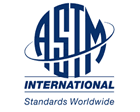Biodiesel has cleared an important hurdle as it passed a vote that will establish standards for the green fuel.
 The Subcommittee E of ASTM International, a group that establishes standards for a variety of things including fuels, has voted to recommend the passage of finished specifications for biodiesel blends. This press release from the National Biodiesel Board (NBB) says this paves the way for an expected positive vote before the full ASTM D02 Main Committee later this week:
The Subcommittee E of ASTM International, a group that establishes standards for a variety of things including fuels, has voted to recommend the passage of finished specifications for biodiesel blends. This press release from the National Biodiesel Board (NBB) says this paves the way for an expected positive vote before the full ASTM D02 Main Committee later this week:
* Finished specifications to include up to 5% biodiesel (B5) in the conventional petrodiesel specification (ASTM D975)
* Changes to the existing B100 biodiesel blend stock specification (ASTM D6751)
* A new specification for blends of between 6 percent biodiesel (B6) to 20 percent biodiesel (B20) for on and off road diesel.
In particular, automakers and engine manufacturers have highly anticipated the B6-to-B20 specification for more than five years. All three proposals were balloted to the D02 Main Committee for consideration at the semi-annual ASTM International (formerly the American Society for Testing and Materials) meeting being held in Vancouver this week. The Main Committee members will render their final votes this Thursday evening, June 19th.
“While it’s not over until the last vote is cast at the main committee Thursday, passage of these ballots is a sort of ‘rite of passage’ that the auto and petroleum industries have said they need in order to more fully support and endorse B20 and lower blends,” said Steve Howell, Chairman of the ASTM Biodiesel Task Force. “It is quite remarkable that the big oil companies and engine makers on the committee have now joined forces with the biodiesel industry to help approve these standards.”
 “We addressed the issues and concerns with solid, scientific research,” said Joe Jobe, CEO of the National Biodiesel Board. “Without the tremendous amount of scientific data provided by independent organizations like Southwest Research Institute (SwRI), the National Renewable Energy Laboratory (NREL), the Coordinating Research Council (CRC) and others, and the cooperation of the petroleum and engine communities, this would not have been possible.”
“We addressed the issues and concerns with solid, scientific research,” said Joe Jobe, CEO of the National Biodiesel Board. “Without the tremendous amount of scientific data provided by independent organizations like Southwest Research Institute (SwRI), the National Renewable Energy Laboratory (NREL), the Coordinating Research Council (CRC) and others, and the cooperation of the petroleum and engine communities, this would not have been possible.”

